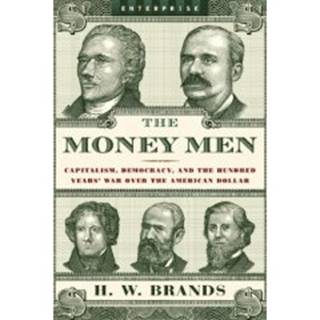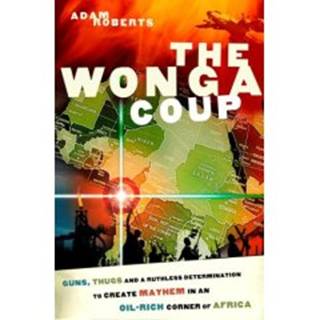

|

KWR Book Reviews H.W. Brands, The Money Men: Capitalism, Democracy, and the Hundred Years’ War Over the American Dollar (New York: W.W. Norton, 2006). 239 pages. $23.95. Reviewed by Scott B. MacDonald
W. Brands, the well-known American historian and author of Andrew Jackson, Lone Star Nation, and The First American, has embarked on telling the story of early U.S. monetary policy through five bibliographical sketches. Although this lacks the more riveting prose of his Andrew Jackson, The Money Men does present a well-written account of a crucial development in U.S. history and the emergence of the dollar as the country’s currency. It also touches upon the evolution of the U.S. financial system. The key theme in the book boils down to the inherent tension between democracy on one side (as advanced by Thomas Jefferson and Jackson) and capitalism (as pushed by the subjects of the five sketches – Alexander Hamilton, Nicholas Biddle, Jay Cooke, Jay Gould and J.P. Morgan). As the author states: “From the start an inherent tension existed between the two. The driving force of democracy is equality, of capitalism inequality. Democratic equality begins in the political sphere but bleeds into the economic realm; capitalist inequality arises in the marketplace but encroaches upon the public square.” While there is some degree of truth about the tensions between democracy and capitalism, especially in that the latter is more blatant in picking winners and losers, the marketplace also is a realm of choices. This was something that Hamilton understood – allowing people to make decisions that would cause enrichment. As Brands brings out in his book, the American genius was the ability to find a compromise that allowed a particular form of democratic-capitalism to evolve in North America. The chapters on Biddle and his battle with Andrew Jackson over the battle over the Bank of the United States and Jay Cooke are probably the strongest and have the most to offer readers. One small quibble with The Money Men and that is Brand’s mention of the Panic of 1819 as the “first full-blown financial panic.” Having recently finished my own work on American financial scandals and having gone back and looked at Robert Sobel’s Panic on Wall Street, 1792 was the starting point for financial panics. In addition, 1819 is regarded as relatively small fare in the great scheme of things, very much overshadowed by what has been referred to as the “crisis of Jacksonian finances in 1837”. According to Sobel 1819 was a “brief but painful panic”. Brands’ The Money Men is well worth the read for anyone interested in the evolution of the U.S. monetary system, the ups and downs of some of the major figures in that evolution, and the interaction of money and politics.
Adam Roberts, The Wonga Coup: Guns, Thugs and A Ruthless Determination to Create Mayhem In An Oil-Rich Corner of Africa (New York: Public Affairs, 2006). 303 pages. $26.00. Reviewed by Scott B. MacDonald
Adam Roberts has written a memorable account of the so-called Wonga Coup, a miserable failure in toppling the brutish dictatorship of Obiang Nguema in Equatorial Guinea, an oil-rich state with an incredibly impoverished population. A staff correspondent of The Economist with extensive experience in Africa, the author follows the trials and tribulations of the coup organizers, Simon Mann, an ex-Executive Outcomes and SAS officer, Nick du Toit, ex-South African special forces, and Crause Steyl, ex-Executive Outcomes leader. The caste of characters involved in the coup also included opposition leader Severo Moto (living in Spain), Sir Mark Thatcher (the son of ex-UK Prime Minister Margaret Thatcher), and Lebanese-Nigerian tycoon Ely Calil. The simple outline of the story is how a group of mercenaries, with the support of a strange collection of backers, sought to overthrow one of Africa’s most notorious dictators, who helped make the small West African country into what one Swedish researcher called, the Dachau of Africa.” While Obiang was regarded as slightly better than his uncle Macias (who was accused of being a cannibal among other things and ousted from power in 1979), Equatorial Guinea remained a tropical backwater. As Adams notes of Obiang: “Obiang looks moderate only when compared with his monstrous predecessor. By 2004, after a quarter century in power, most commentators ranked him as one of the worst leaders anywhere in the world.” Accordingly, Amnesty International and Human Rights Watch routinely report on extrajudicial executions, torture and rape by police and soldiers, while the small tribal (Fangs) and clan-based political elite happily loots the country. Following the discovery of oil in the late 1990s, money from major oil companies – in particular – Amerada Hess, Marathon and ExxonMobil – flowed in. Into this tropical paradise came the coup plotters. In many regards, the Wonga Coup was an epilogue to Frederick Forsyth’s The Dogs of War, a novel written in 1973 and most likely based on real events in Africa. In many regards, Forsyth was describing an earlier failed coup attempt in the same country and in the tradition of other African mercenaries, Mike Hoare and Bob Denard. Simply stated, the motivation was money. As Adams points out, the 2004 coup attempt had nothing to do with ideology (though there was a fig leaf of putting a “democratic” government into power), but everything to do with money. He points that earlier African struggles in Angola (with the South African mercenary company Executive Outcomes) was over the control of oil and diamonds; Equatorial Guinea “was all about controlling oil revenues.” Indeed, “Nobody intended to use the oil for a more decent purpose, such as developing an economy to lessen poverty and improve the lives of ordinary Africans.” As for the word Wonga, Adams provides a definition: “Early twenty-first British slang for money, usually a lot.” Certainly the takeover of Equatorial Guinea would of resulted a lot of wonga for those involved. All in all, Adams The Wonga Coup is a very worthwhile read, reflecting how previous backwaters become hotspots as oil and other resources put them on the map for international companies, foreign policy decision-makers, and anyone else who thinks they can make gains – even by the use of the gun.
|

